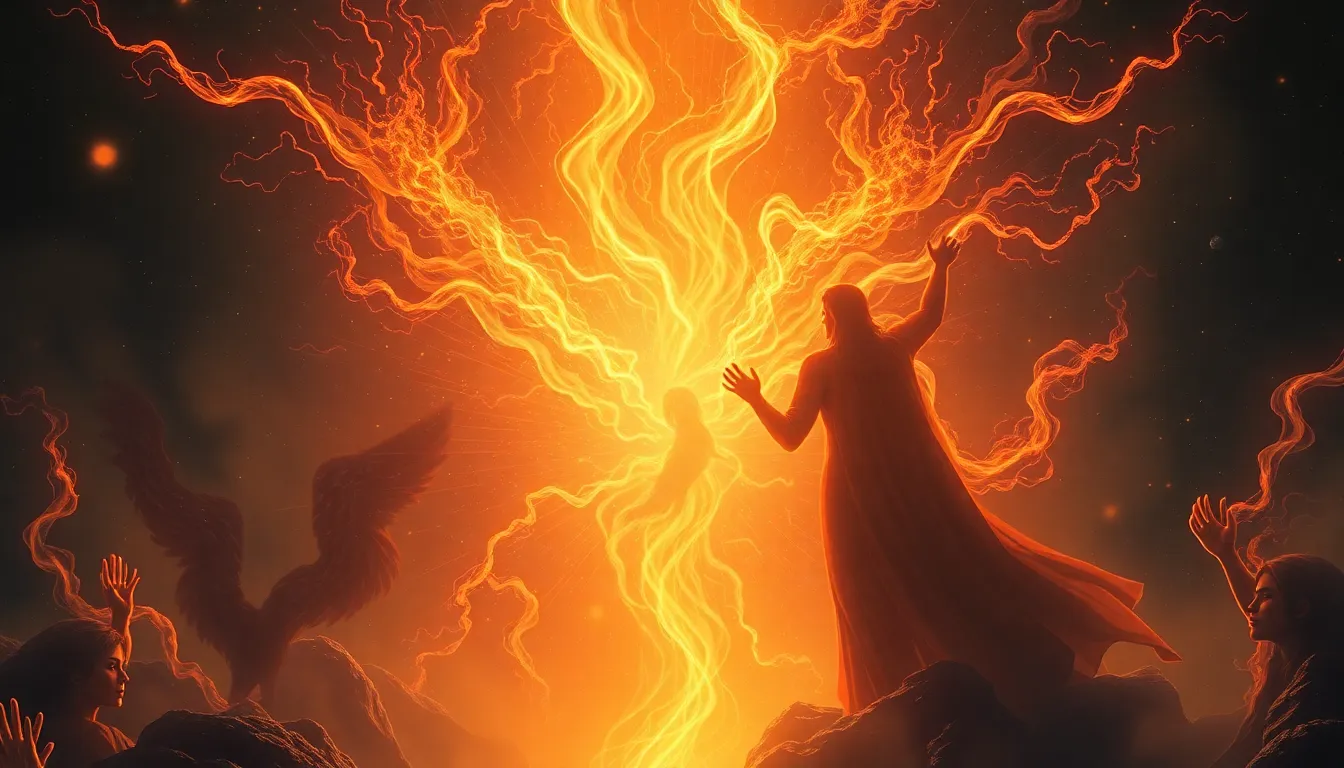The Myth of the Great Awakening: Morality in Realization
I. Introduction
The Great Awakening refers to a series of religious revivals that swept through the American colonies in the 18th and 19th centuries, characterized by widespread enthusiasm and a renewed emphasis on personal faith. This movement significantly shaped American society, culture, and moral thought.
Historically, the Great Awakening is framed as a pivotal moment in the development of American identity, contributing to a sense of unity among diverse colonial populations. However, the purpose of this article is to explore the myth versus reality of the Great Awakening and its implications for moral understanding. What does it mean to awaken, and how do these awakenings reflect and influence our moral frameworks?
II. Historical Overview of the Great Awakening
The Great Awakening is typically divided into two major periods: the First Great Awakening and the Second Great Awakening.
A. Key events and figures in the First Great Awakening (1730s-1740s)
The First Great Awakening emerged in the 1730s and 1740s, marked by revival meetings, emotional preaching, and a focus on personal conversion. Key figures included:
- Jonathan Edwards: Known for his fire-and-brimstone sermons, including “Sinners in the Hands of an Angry God.”
- George Whitefield: A charismatic preacher whose open-air meetings drew large crowds and emphasized the need for personal faith.
B. Overview of the Second Great Awakening (early 19th century)
The Second Great Awakening, which began in the late 18th century and flourished into the 19th century, expanded the scope of religious revivalism. It emphasized social reform and included movements such as abolitionism and women’s rights. Notable figures included:
- Charles Finney: A prominent revivalist who advocated for social justice and personal morality.
- Joseph Smith: Founder of the Church of Jesus Christ of Latter-day Saints, reflecting the diverse religious landscape of the time.
C. The role of religion and revivalism in societal change
Both awakenings played crucial roles in reshaping societal norms and values, encouraging individuals to take personal responsibility for their moral and spiritual well-being.
III. The Myth of a Collective Awakening
The narrative surrounding the Great Awakening often suggests a universal moral improvement across society. However, this perspective overlooks the complexities of individual and communal experiences.
A. The narrative of universal moral improvement
Proponents of the Great Awakening often claim it led to a widespread moral revival, resulting in greater social harmony and a collective ethical consciousness.
B. Examination of the Awakening as a unifying experience
While some communities experienced revitalization, many others did not share this experience, and divisions—both social and religious—remained prevalent.
C. Historical evidence contradicting the myth of a single awakening
Historical records indicate that the Great Awakening was not a monolithic movement. Different regions and communities responded in varied ways, reflecting a mosaic of beliefs rather than a singular moral awakening.
IV. Morality: A Complex and Subjective Concept
Understanding morality requires a nuanced approach, as it has evolved over time and varies across cultures.
A. Definition and evolution of morality through history
Morality can be defined as the differentiation of intentions, decisions, and actions between those that are distinguished as proper and those that are improper. Throughout history, moral understanding has shifted significantly.
B. Cultural variations in moral frameworks
Different cultures have developed distinct moral frameworks, influenced by religious beliefs, social norms, and historical contexts. For instance:
- Western morality has often been shaped by Judeo-Christian values.
- Eastern philosophies may emphasize harmony and collectivism over individualism.
C. The impact of the Great Awakening on American moral thought
The Great Awakening influenced American moral thought by emphasizing personal responsibility and the importance of individual conscience, but it also led to conflicting moral narratives.
V. The Influence of Religious Institutions
Religious institutions played a significant role in shaping moral narratives during the Great Awakening.
A. Role of churches and leaders in shaping moral narratives
Church leaders became prominent moral authorities, guiding congregations on issues ranging from personal conduct to social justice.
B. Conflicts between different religious denominations
The awakenings often sparked conflicts among various denominations, highlighting differing theological interpretations and moral priorities.
C. The impact of the Great Awakening on social justice movements
The moral fervor of the Great Awakening catalyzed various social justice movements, including:
- Abolition of slavery
- Women’s suffrage
- Temperance movements
VI. The Role of Social and Economic Factors
Socioeconomic changes significantly influenced the Great Awakening’s development and reception.
A. How socioeconomic changes influenced the Great Awakening
The rise of a market economy, urbanization, and social mobility created fertile ground for religious revivalism as individuals sought meaning in rapidly changing circumstances.
B. The relationship between class struggles and moral perspectives
Class struggles often informed moral perspectives, with the wealthy advocating for stability and the poor seeking justice and reform.
C. Case studies of communities before and after the Great Awakening
Examining specific communities reveals how the Great Awakening reshaped local moral landscapes, such as:
- The transformation of communal values in New England towns.
- The emergence of new religious sects in the frontier regions.
VII. Critiques of the Great Awakening’s Legacy
Scholarly critiques of the Great Awakening’s legacy question its effectiveness in producing meaningful moral change.
A. Scholarly perspectives on the effectiveness of the Great Awakening
Some scholars argue that while the Great Awakening mobilized large groups, it did not translate into substantial social reform or lasting moral improvement.
B. The rise of secularism and its challenge to moral narratives
The increasing secularization of society posed challenges to traditional moral narratives, leading to a reevaluation of ethical frameworks.
C. Counter-movements and their implications for morality
Various counter-movements emerged, such as humanism and atheism, which provided alternative moral perspectives and challenged religious dominance.
VIII. Contemporary Reflections on the Great Awakening
The lessons of the Great Awakening resonate today, as contemporary social movements echo its themes of moral realization and activism.
A. Modern parallels with today’s social movements
Today’s movements, such as Black Lives Matter and climate activism, reflect the same spirit of urgency and moral conviction that characterized the Great Awakening.
B. The relevance of the Great Awakening in current moral discourse
The discussions surrounding individual and collective morality can benefit from historical insights gained from the Great Awakening.
C. The role of technology and communication in shaping moral realizations
In the digital age, technology facilitates the spread of moral ideas and mobilizes communities, similar to the revivalist meetings of the past.
IX. Reassessing Morality in the Light of the Great Awakening Myth
Understanding morality requires a nuanced approach informed by historical context and critical thought.
A. The need for a nuanced understanding of morality
Morality is not a fixed concept; it is shaped by cultural, social, and historical factors that require careful examination.
B. Lessons learned from the Great Awakening for modern ethical debates
Modern ethical debates can learn from the complexities of the Great Awakening, recognizing that moral truths are often contested and multifaceted.
C. The importance of critical thinking in moral realization
Critical thinking equips individuals to navigate moral dilemmas and question prevailing narratives, fostering a more profound understanding of morality.
X. Conclusion
The Great Awakening presents a fascinating case study in the intersection of religion, morality, and societal change. While often mythologized as a period of universal moral revival, a closer examination reveals a more complex reality characterized by diversity and conflict. As we reflect on this historical phenomenon, it is crucial to approach morality with an open mind, recognizing its fluidity and the various influences that shape our understanding. By critically engaging with the




